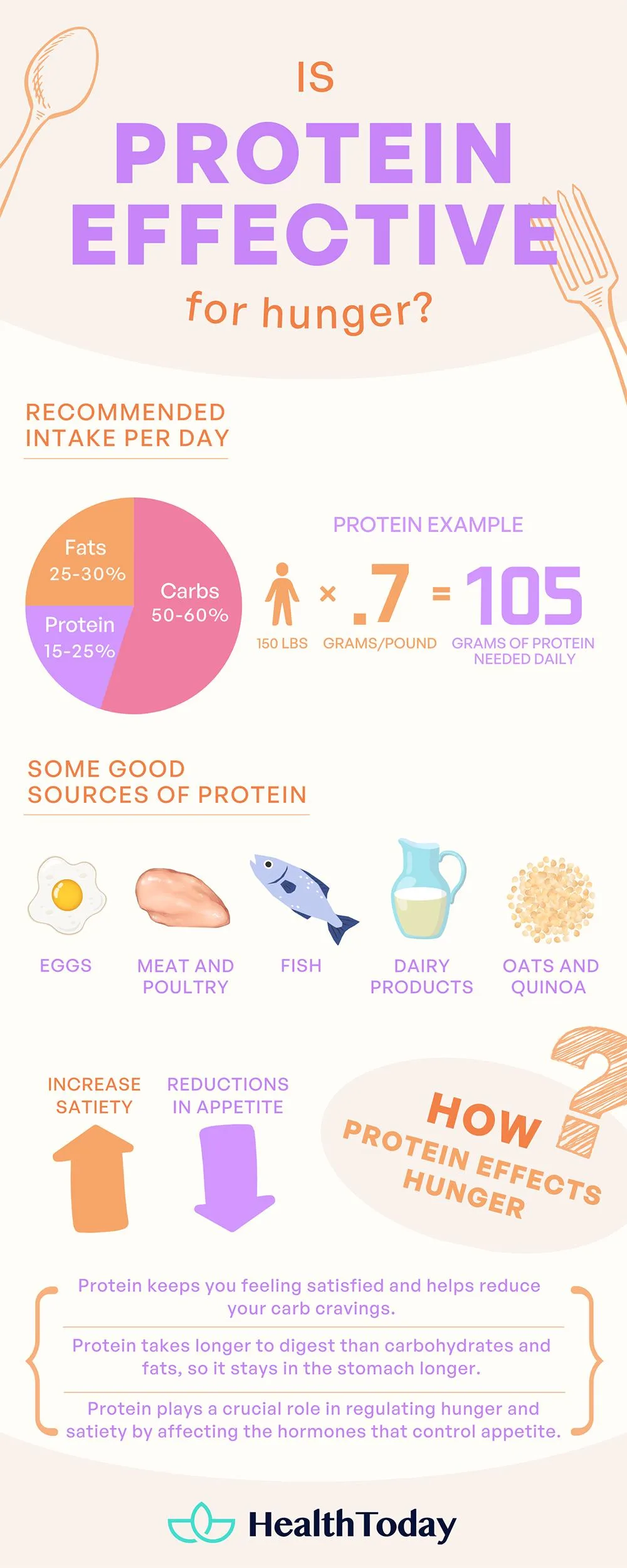Table of Contents
Constantly have a rumbling stomach, even after meals? Always feeling hungry can be frustrating. But don’t fret; there are many reasons for this!
Sometimes, you may confuse physical hunger, the unpleasant sensation caused by food deprivation, with food cravings, a simple inkling. Other times, it might be because you’re stressed, not getting enough sleep, have ill health, or have a bad diet.
If you wish to lose weight but don’t know where to start, check out for advice.
Nevertheless, it’s important to recognize your hunger cues because they impart better eating patterns that pave the way for a healthier lifestyle!
Discover 15 possibilities for your constant hunger!
1. Hormonal imbalances
Hormones are the body’s chemical messengers. They are responsible for sending signals that onset and terminate all our bodily functions, including appetite regulation (4).
The main messengers in control of appetite control include ghrelin and leptin (5). Ghrelin plays the role of appetite increaser, while leptin is the appetite suppressor. When there’s an imbalance in hunger hormones, which favors the production of more ghrelin, then we would constantly feel hungry (6).
Hormonal imbalances can be caused by various factors, such as food intake, the use of drugs, and some medical conditions (7). There are plenty of ways to manage hormonal imbalances, but the best way is to consult your local physician.
2. Excessive stress
Stress is endemic in today’s bustling society, and it’s no secret that it’s bad for our health.
Short-term stress can shut down appetite as our body is programmed to act on a fight-or-flight response by releasing the hormone adrenaline (8). But persistent stress is an entirely different story.
Chronic stress elevates cortisol, the stress hormone, levels (9). Though the association is unclear, it may be catalyzing a cascade of internal events, such as increasing ghrelin production and decreasing leptin production. Both of which ultimately ramp up our motivation to divulge in food.
If you believe that stress is the reason for your hunger, seek some stress relievers like (10, 11, 12):
- Meditation. It helps focus your attention only on the present moment and quiet jumbled thoughts.
- Creativity. Whether you sing, dance, or paint, all of these provide a space for mental distraction.
- Humor. It may be cliche to say that laughter is the best medicine. But science has proven again and again that laughter invites positive emotions and reduces stress.
3. Lack of sleep
Sleep replenishes the brain and the body. So, not getting enough sleep is one factor that disrupts metabolic function and hormone levels (13). In fact, the lack of sleep is often linked to obesity, and science has shown that it also increases cortisol levels (14).
That only means that being sleep-deprived makes you feel stressed!
Operating on the same mechanism as stress, sleep loss may lead to increased appetite. It is even linked to weight gain and obesity.
Here are some tips that you can try to improve your sleep (15, 16, 17):
- Create a comfortable environment suitable for sleep. A cool, dark, and cozy environment can help you feel more relaxed and maintain sleep throughout the night while your body’s temperature changes mid-sleep.
- Try sustaining a consistent sleep schedule. Get up and sleep at the same time every day, even on weekends. This conditions your body to a sleep routine.
- Keep away from electronics and bright light. Turn off electronics at least 30 min before bedtime. It helps with the production of melatonin, the sleep hormone.
4. Emotional eating
Widely known as hedonic hunger, emotional eating is the desire to consume more food in the absence of physical hunger just for the sole purpose of pleasure (18). This often acts as a distraction from the hassles of negative emotions such as boredom, sadness, and fear (19).
Unsurprisingly, hormones are at work here too.
When we eat for the purpose of enjoyment, the brain usually releases three hormones dopamine, endocannabinoids, and opiates. These increase appetite via the enhanced secretion of the hormone ghrelin and impair our body’s perception of satiety (20).
The three hormones released by the brain also trigger the habitual act of pleasure eating (21). This often leads to feelings of regret, guilt, or shame after every episode of pleasure eating (22). Here are some ways to avoid this:
- Keep a food diary. It helps you keep track of what, when, and how much you eat. You can also write about how you’re feeling when you eat or how hungry you are.
- Give the craving time to pass. This also gives you time to assess whether you are really hungry or you’re just itching to chew on something.
5. Not eating enough protein

Protein consumption is important for appetite regulation.
Most evidence suggests that at sufficiently high levels, protein is more filling than carbs or fat (23). In fact, eating more than the recommended daily intake of 0.8 grams per kilogram of body weight holds benefits such as reduced hunger and improved satiety (24). How does it work?
High-protein diets promote fullness by influencing hormones that control hunger and satiety. Dietary protein induces the secretion of appetite-reducing hormones, like glucagon-like peptide-1 (GLP-1) (25). It also inhibits the release of ghrelin, the appetite enhancer.
There are a variety of foods that are high in protein. So, incorporating more of them into your meal is not that difficult. Some good sources of protein include (26):
- Eggs
- Fish
- Lean Meat and Poultry
- Dairy Products
- Beans and Lentils
- Oats and Quinoa
6. Eating too many processed foods
It’s been established that frequent consumption of highly processed foods has harmful effects on our health (27). But there’s more! Findings suggest these foods, like chips, deli meat, or canned fruit in syrup, cause people to be hungry, overeat, and gain weight (28). Why?
A study conducted by the US NIH tested 20 men and women and found that these high-calorie foods trigger the appetite-stimulating hormone ghrelin. This causes people to consume more food and eventually causes weight gain (28).
So, what’s a better alternative? Foods that are natural or minimally processed, such as brown rice, seafood, and vegetables, are good options. They are more filling and contain more of the essential nutrients our bodies need (30).
7. Eating too quickly
Eating behaviors influence the effectiveness of our efforts in trying to alleviate hunger. Fast eaters are often unaware of what and how much they ingest and often forget to chew their food. Both these factors affect satiety perception, and they don’t allow the body enough time to respond to fullness (31, 32).
Unsurprisingly, our body’s chemical messengers also play a role here. When we consume food at a slower pace, appetite-suppressing hormones called PYY and GLP-1 are released at a higher rate (33, 34). Hence, it promotes feelings of satiety and improves body weight regulation.
Indeed, the best solution to high-speed consumption is mindful eating. It is being aware and savoring the experience of eating good food (35). Here are some ways to practice mindful eating:
- Don’t rush mealtime.
- Chew your food thoroughly.
- Avoid distractions.
- Stop when you feel satisfied.
8. Consuming too much sugar
Sweet and starchy treats give us the sugar rush, and suddenly we’re bursting with energy. However, such foods that contain a high sugar content or glycemic index (GI) only make us hungrier (36).
Sugar is a key ingredient that spikes blood glucose (sugar) levels, which leads to the release of the hormone insulin.
Insulin is in charge of transporting sugars to the cells in our body. When it works fast, it then causes a sudden drop in blood sugar levels. This, in turn, signals hunger -yet again- to the brain (37).
It’s difficult to avoid sweets altogether. A more sustainable approach would be to be wary of sugar intake and to consume lower GI foods, like apples, oranges, beans, skim milk, carrots, and cashews (38, 39).
9. Not eating enough fiber
Having insufficient fiber intake could also be the reason why you always feel hungry.
Dietary fibers are proven to prevent obesity by having longer-lasting satiety and hunger impairment effects (40). Evidence shows that the intake of fiber could lead to less snacking, delayed food intake, and reduced portion sizes after subsequent meals (41).
Chewing fibrous foods requires time and effort (42). This act of prolonged mastication promotes the secretion of bodily fluids like saliva and gastric juices, which causes the stomach to expand and signal the brain for fullness (43).
Fiber can also induce satiety in another way. It can delay the stomach’s emptying rate, and it takes longer to digest (44).
It is essential to know that different types of fiber can have varied efficiency in providing satiety. It’s found that soluble fibers are more effective in reducing hunger and sustaining fullness than their insoluble counterpart (45). Some examples are oats, pear, citrus fruits, beans, and barley.
10. Skipping meals
Frequently dismissing hunger cues can have deleterious effects on appetite control and health. Usually, it leads to poor diet quality, lower intake of essential nutrients, and increased risk of heart disease (46).
Skipping meals abruptly may cause our bodies to be confused, and it disrupts the regulation of hormones and body signals.
A study was conducted on thirteen adults on the effects of eating regularly or skipping of high-protein breakfast meals. It was found that people who do not skip breakfast reported a decrease in their morning and daily hunger, their desire to eat, and their ghrelin levels (47).
So even if you’re on a diet, remember to do it healthily! You can still lose weight by enjoying food. Some ways to do this are:
- Do meal prep! It saves time, and if you’re calorie-conscious, it’s a perfect way to keep track of how many calories you actually take in.
- Stock your pantry with nutritious foods! Choose healthier ingredients like whole grains and fresh food instead of artificially made ones like bacon, chips, and sweetened fruits.
- Be creative and explore healthier, low-calorie meal options! If you want tiramisu, make them! There are recipes under a hundred calories per serving, and they taste equally good!
11. Consuming too many refined carbs
Carbs are the main energy provider. That’s awesome because they taste good! But we have to be wary because they have two faces: a beneficial face and an unhealthy face. Eating unhealthy and low-quality refined carbohydrates can lead to reduced delayed satiety after meals and weight gain (48).
What determines the quality of carbohydrates? Carbs with high fiber content, low glycemic index, and those that are minimally processed are all considered good-quality carbohydrates (49). These qualities slow the speed of digestion and improve satiety effects.
Refined carbs like commercial bread and cookies can be addicting. So here are some tips to reduce refined carbs intake:
- Pay attention to food labels. They give nutritional information that makes you conscious about what you eat.
- Choose low-carb snacks such as nuts and cheese instead of crackers and chips.
- Replace sugary drinks with fruit juice or fruit itself. Juices and fruits are a much more natural and healthier alternative to those processed canned drinks.
12. Not eating enough fat
Many avoid fat because they think that it’s unhealthy. But this is a common misconception.
Surprisingly, most fats actually promote fullness, and some of them are beneficial!
Fats slow down the whole digestive process and give off satiety signals when they reach the small intestine (50). Once fat enters the first few inches of the intestine, it releases cholecystokinin (CKK) and other peptides to regulate food intake and promote satiety (51). Further along its travel, fat then increases the intensity of these signals.
If you’re one of those who avoid fat, try choosing healthier options like unsaturated fats, which are liquid at room temperature (52). These healthy fats, such as omega-3 fatty acids and medium-chain triglycerides (MCTs), have been found to have health benefits, like improved cholesterol and appetite-suppressing features (53, 54).
Omega-3 oils can be found in fatty fish like salmon, tuna, and sardines. MCTs, on the other hand, are richly found in coconut oil and cow’s milk (55). Other healthy sources of fat include avocado, walnuts, and flax seeds.
13. Dehydration
Dehydration is the inadequate supply of fluids due to lack of water intake or because of liquid loss through sweat, tears, or urine (56, 57). Proper hydration, or drinking enough water, has many health benefits, including potentially aiding in weight loss (58).
Drinking water is filling. It has the potential to reduce appetite, and thus, it prevents us from overeating (59). A research study involving 14 male adults suggests that people who drank 2 cups of water before meals ate fewer calories than those who didn’t consume any (60).
Stay hydrated by:
- Always keep a handy tumbler at a reachable distance.
- Eating water-rich fruits and vegetables, like watermelon and lettuce.
- Drinking water before and after meals.
14. Drinking too much Alcohol
Have you ever wondered why on a night out drinking with friends, you crave fried and salty foods even after you’ve had dinner? That’s because alcohol may enhance our appetite (61).
Evidence has shown that drinking alcohol inhibits appetite-suppressing hormones like leptin (62). Without these hormones, there’s nothing signaling our brain that we’re already full!
This is especially true when alcohol is consumed before or during a meal.
Not only does alcohol trigger appetite, but it also causes compulsive eating (63). This is because alcohol impairs part of the brain causing impaired judgment and loss of self-control.
It is best advised to drink responsibly or avoid alcohol completely.
15. Medical Conditions
Extreme hunger is known to the medical world as hyperphagia, and it can be caused by all sorts of conditions such as premenstrual syndrome, pregnancy, hypo- and hyperglycemia (commonly known as low and high blood sugar), depression, and eating disorders (64).
Excessive hunger can also be a sign of underlying problems such as diabetes and hyperthyroidism (65, 66).
Certain medications can also induce hyperphagia. These include antipsychotics, antidepressants, and immunosuppressive drugs like Mirtazapine, clozapine, and corticosteroids (67, 68, 69).
If you’re concerned about your increasing appetite, the safest solution is to consult with your local healthcare provider.
Summary
Constant hunger is an indicative sign that our body needs fuel. It’s caused by a variety of factors, including poor lifestyle, bad food choices, and hormonal imbalance. Certain medications can also cause you to be hungry all the time.
If you’re looking to change your hunger situation, you can start by reevaluating your diet or lifestyle and make the necessary changes that could lead to a healthier, stress-free life.

















Comments
0